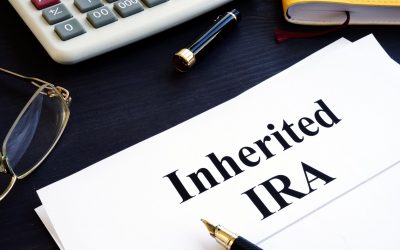
Estate planning is an important part of retirement planning for many reasons: You’ve worked hard for your money and want to see it passed down in the most efficient way possible for your loved one’s benefit. Unfortunately, costly mistakes are all too easy to make. Without careful planning and discussion, you could end up passing on a larger tax burden and leaving heirs uncertain about what to do. It’s important to discuss how you plan to transfer your wealth with your trusted financial professional and your loved ones when preparing the next generation to inherit wealth.
Create or Review Your Estate Plan
It’s important to regularly review your estate plan and update it when there are major life changes like the birth of a new beneficiary, marriage, divorce, or when beneficiaries become eligible to receive money. Many people may not know that their will does not control who inherits all of their assets, such as retirement accounts, life insurance, and annuities. In order to pass these on, you must name a beneficiary for each retirement account, insurance policy, and annuity.
Consider Tax Minimization Strategies
You’re likely thinking about tax minimization in 2020 and beyond for yourself, but what about your heirs? Some of the same strategies could also potentially help minimize their tax burdens. Talking with your loved ones about how inheriting money could affect their taxes is one way to start the conversation about wealth transfer. You may have the option to convert funds from a traditional IRA, 401(k), or similar qualified retirement account into a Roth IRA. In this case, you would pay tax on the funds converted and then be able to withdraw them tax-free later on.[1] Consider that the Tax Cuts and Jobs Act lowered tax rates and will expire at the end of 2025.
Discuss What Heirs Plan To Do With Money
Communication is crucial when preparing heirs to inherit wealth, and this includes discussing what they plan to do with money and how they can handle it responsibly. A “DIY” or “do it yourself” mentality has spread from the realm of home improvement to finance. And while it’s good for younger generations to educate themselves on their finances, they may run into trouble when investing on their own. Online stock trading platforms have become popular,[2] and younger users may only see the upsides to day trading on their own and fail to understand the complexities of investing, such as diversification and rebalancing. There is also likely a fair amount about our complex tax code they don’t fully understand.
When preparing the next generation to inherit wealth, neither you nor your heirs need to go the DIY route. We’re trusted financial professionals who can help you create a comprehensive retirement plan where your retirement income plan, tax minimization strategy, and estate plan all work together. Get in touch with us to find out how we can help you create a financial plan for your retirement and the future.



